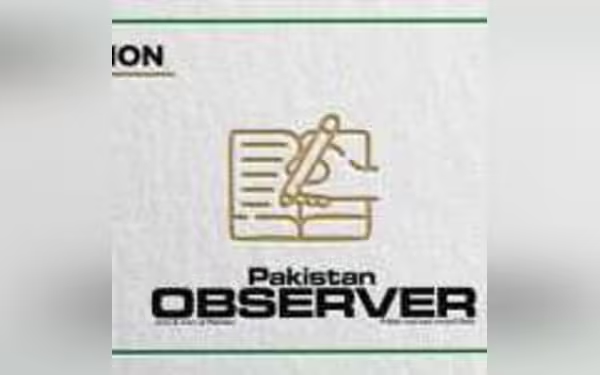Tuesday, July 2, 2024 04:36 PM
Pakistan's Fuel Price Reduction Sparks Political and Educational Reforms
- Public transport fares need adjustment post fuel price drop
- Importance of transparent electoral processes highlighted by NOTA option
- Challenges in education sector require more schools and trained teachers
 Image Credits: pakobserver
Image Credits: pakobserverThe recent fuel price reduction in Pakistan prompts calls for fair public transport fares, transparent elections, and improved education access.
The recent reduction in petrol and diesel prices in Pakistan has brought relief to the public amidst rising inflation. The government's decision to lower petrol prices by more than 15 rupees per liter and diesel prices by 7 rupees per liter is a positive development. However, it is essential that these savings directly benefit the people, especially in the public transport sector.
Despite the significant drop in fuel costs, public transport fares have not been adjusted accordingly. This discrepancy underscores the importance of revising fare schedules to reflect reduced fuel prices. Lower transportation costs can lead to decreased prices for essential goods, easing financial burdens on the population.
Furthermore, the influence of certain political figures, like IK, has gained a devoted following. While admiration for leaders is common, it is crucial to maintain perspective and not elevate contemporary figures above historical icons like Allama Iqbal and MAJ. Blindly following political figures can be harmful, particularly in times of economic uncertainty.
The upcoming general elections have highlighted concerns about politicians with criminal records and the use of inappropriate language during campaigns. The introduction of the 'None Of The Above' (NOTA) option allows voters to express dissatisfaction with available candidates, emphasizing the need for transparent and accountable electoral processes.
Pakistan faces challenges in providing quality education to all its citizens, as indicated by its low educational rankings. Bridging this gap requires not only more schools but also trained teachers, adequate resources, and essential facilities. Addressing school dropouts necessitates the establishment of primary and middle schools within accessible distances to prevent early discontinuation of education.
The government's initiative to enroll over two million out-of-school children is a positive step towards enhancing educational access. By prioritizing education, Pakistan aims to progress as a society. However, achieving this goal will demand sustained efforts and effective implementation strategies.
The reduction in fuel prices presents an opportunity to improve public transport affordability and address political and educational challenges in Pakistan. By ensuring that cost savings benefit the public directly, revising political practices for transparency, and enhancing educational access, Pakistan can strive towards a more prosperous and inclusive future.













